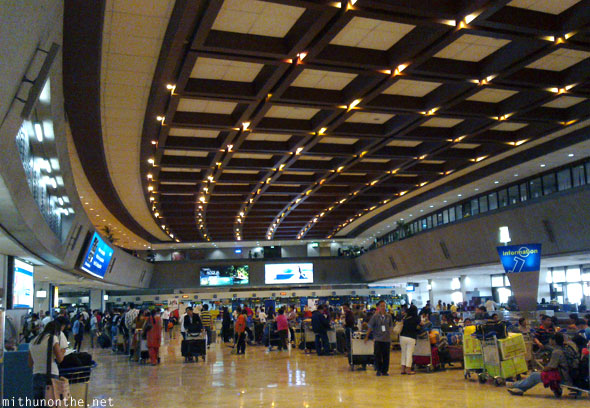SUMMARY
This is AI generated summarization, which may have errors. For context, always refer to the full article.

MANILA, Philippines – The Civil Aeronautics Board (CAB) said Monday, June 11, it will review its twin orders tightening rules on ticket refunds and overbooking upon the request of the country’s budget carriers.
Cebu Air Inc and Zest Airways Inc have filed their respective motions for reconsideration of CAB resolutions 28 and 29, saying these are discriminatory and may result in higher fares. Air Asia Inc filed its motion for reconsideration last week.
(Update: South East Asian Airlines, Inc. (Seair) filed its appeal on June 13, increasing the total received from airlines to 4. Among the local commercial airlines, only Philippine Airlines (PAL) and its budget arm AirPhil Express did not oppose the government’s move.)
“When there is a motion to reconsider our decision, we will have to review the orders which are, as I have pointed out, only provisional remedy adopted by the board to protect the passengers from prevalent forfeiture of fares,” said CAB Executive Director Carmelo Arcilla.
Resolution 28 bans overbooking or the industry practice of selling more tickets than the number of seats available. Resolution 29 on the other hand requires airlines to refund or rebook all availed low-cost tickets if passengers are not able to take the flights, regardless of the reason. Both resolutions will take effect on Friday, June 15.
The airlines are concerned that the resolutions will make them uncompetitive since these do not cover foreign carriers.
They also said that refunding and rebooking passengers of low-cost or promotional flights will jack up carriers’ costs, which in turn, will require an increase in fares.
‘No equal protection’
Gokongwei-led Cebu Pacific said Resolution 29 violates the equal protection clause under law because it applies only to promotional and regular tickets of Philippine carriers.
Foreign budget carriers such as Tiger Airways, AirAsia Berhad, Jetstar Airways and Jetstar Asia as well as full-service ones – Singapore Airlines, Cathay Pacific and Thai Airways – are also selling non-refundable and/or non-rebookable tickets in the Philippines.
“The domestic carriers and foreign carriers are not treated equally,” Cebu Pacific said in its motion. “We do not see the same restrictions being imposed on other public utilities engaged in transportation business. Buses and ferries have the same restrictions on their tickets and no such imposition or regulation is being made on them.”
The airline also explained the rationale behind low or promotional fares: the reason they are cheap is because transaction costs related to refundability and rebookability are eliminated.
If these are allowed, “airlines will have to handle a surge in the number of rebooking transactions and process refunds on thousands of transactions which will require additional headcount and overhead that will drive up costs and ultimately, the fares,” it said.
“By purchasing the cheaper but restricted promotional tickets, airline passengers are expected to understand the terms and conditions of the same. Invariably, the promotional fares are really super cheap which the vast majority of consumers purchase even if they are uncertain about buying these tickets or taking the flights.”
Cebu Pacific believes there is no urgency in implementing the order, which CAB said is the answer to mounting passenger complaints in the aviation sector. However Cebu Pacific said CAB “zeroed in” on 81 passenger complaints in 2011 against the 30 million total the airlines carried that year.
Overbooking a worldwide practice
Overbooking meanwhile is global practice that is recognized by various aviation authorities, Cebu Pacific argued.
It also dismissed the common notion that overbooking mainly benefits airline companies.
Overbooking or the practice of selling more tickets than there are seats allows airlines to maximize return on investment since it reduces the chance that a plane takes off with empty seats. The practice came about as airlines experienced a growing number of “no-shows” or passengers that cancelled at the last minute.
“Again, the practice of overbooking is often misunderstood as mainly benefiting the airline when, in fact, overbooking benefits the consumers as the airline artificially inflates capacity and is able to spread their cost across more seats which would mean lower fares for the passengers,” Cebu Pacific said.
Zest air chief marketing and sales officer Alfredo Herrera also raised similar arguments in a recent interview. “The low-cost carriers are responsible for bringing the fares down. We are the reason why the airline industry is as dynamic and competitive as it is today. If the orders are implemented there will definitely an adjustment in fares of at least 10% similar to what Cebu Pacific has cited.”
Aggressive promotional fares to destinations in the Philippines hiked the country’s air traffic by 13% to 18.76 million passengers in 2011, the CAB earlier reported. – Rappler.com
Add a comment
How does this make you feel?
There are no comments yet. Add your comment to start the conversation.